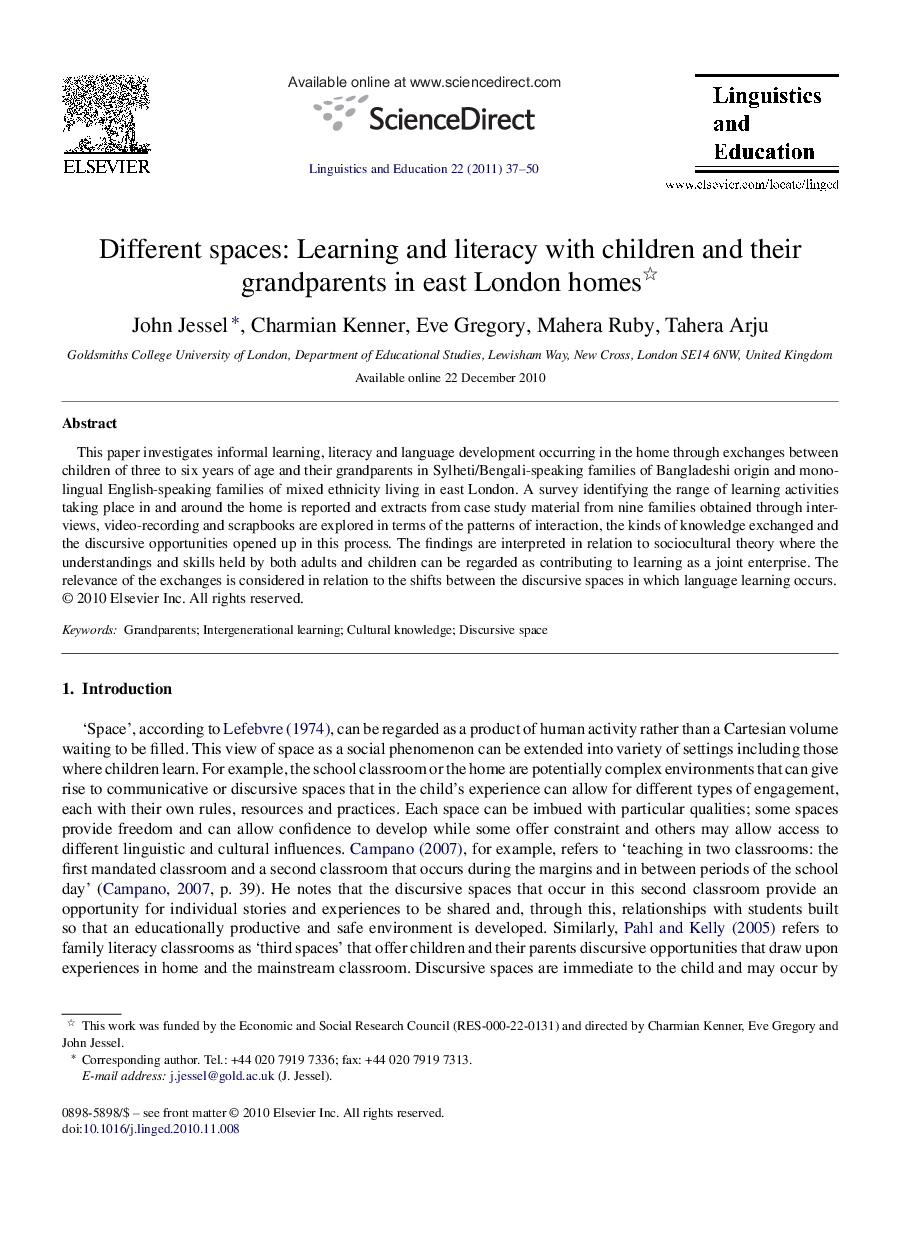| Article ID | Journal | Published Year | Pages | File Type |
|---|---|---|---|---|
| 366270 | Linguistics and Education | 2011 | 14 Pages |
This paper investigates informal learning, literacy and language development occurring in the home through exchanges between children of three to six years of age and their grandparents in Sylheti/Bengali-speaking families of Bangladeshi origin and monolingual English-speaking families of mixed ethnicity living in east London. A survey identifying the range of learning activities taking place in and around the home is reported and extracts from case study material from nine families obtained through interviews, video-recording and scrapbooks are explored in terms of the patterns of interaction, the kinds of knowledge exchanged and the discursive opportunities opened up in this process. The findings are interpreted in relation to sociocultural theory where the understandings and skills held by both adults and children can be regarded as contributing to learning as a joint enterprise. The relevance of the exchanges is considered in relation to the shifts between the discursive spaces in which language learning occurs.
Research highlights▶ The grandparent-grandchild relationship has a reciprocal quality. ▶ With the grandparent, the child treated as an equal partner in learning. ▶ Touch, gesture and gaze are important in guiding and constructing learning events. ▶ The intergenerational space opened up has an authentic learning dimension. ▶ Literacy extends from joint action and common enterprise within the learning space.
